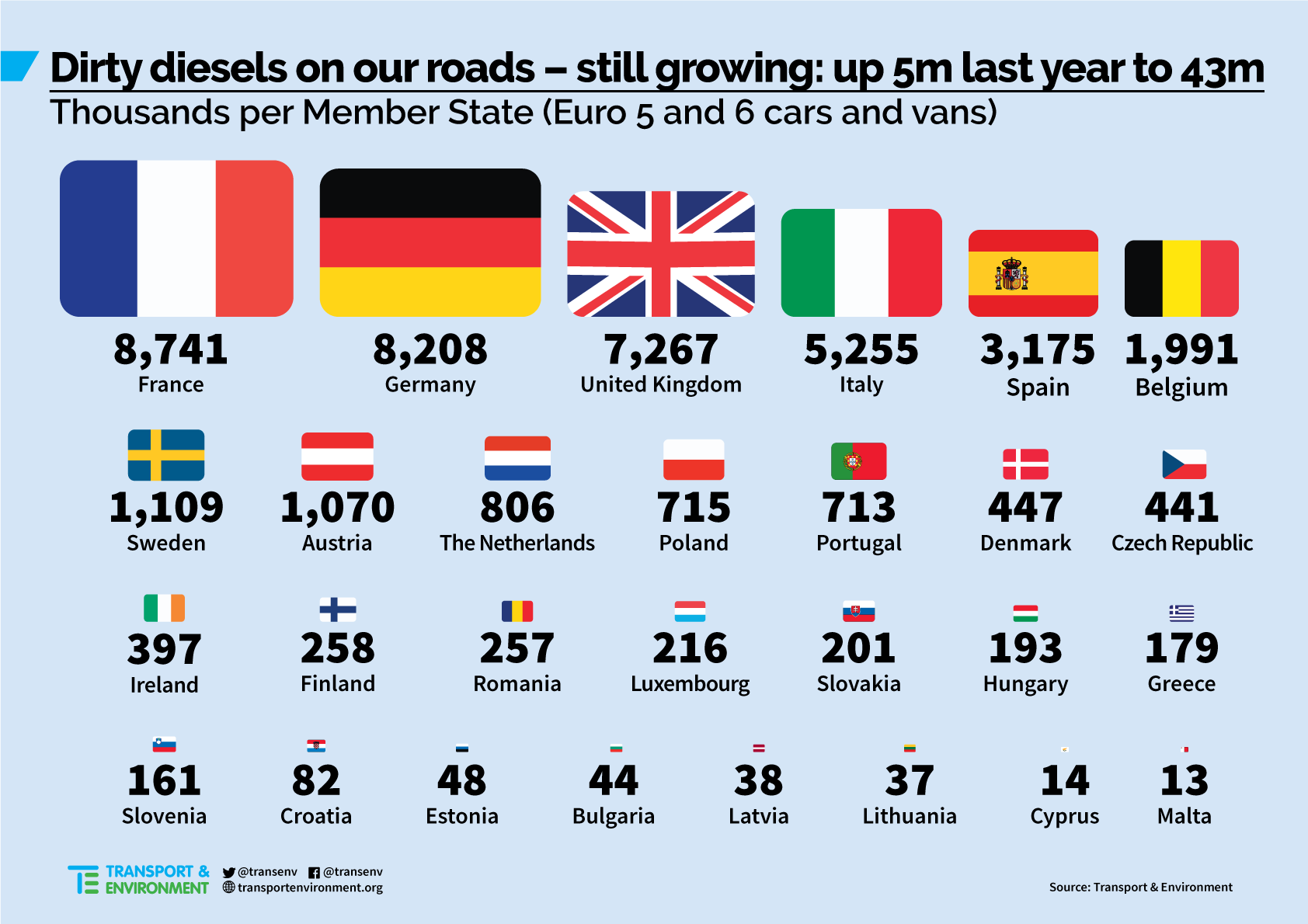
Interested in this kind of news?
Receive them directly in your inbox. Delivered once a week.
In September 2015, tests in America showed that VW was using software in its EA189 diesel engine specifically to cheat emissions tests. The software recognised when an emissions test was taking place and sprayed large amounts of AdBlue (a trade name for a urea-based product) into the engine to reduce emissions; but as soon as the car was not in a test, the amount of AdBlue was reduced considerably, reducing the driver’s costs but increasing polluting emissions. The scandal became known as Dieselgate.
Now the television station SWR, the south-west German arm of the national public service channel ARD, says it has seen documents from VW’s technical development department which explain how the EA288 engine works. Dating from late 2015, when the engine was being developed as a replacement for the EA189, they give a detailed description of how the so-called ‘cycle recognition’ works. SWR says: ‘Experts understand cycle recognition to mean software in the car that recognises that an emissions test is taking place. Such software was present in the first diesel scandal.’
In a statement to SWR, VW said: ‘Vehicles with the EA288 diesel engine, which meet the Euro 6 emissions standard, contain no cycle recognition.’
SWR showed the documentation to the German traffic expert Axel Friedrich, who sits on the German parliamentary committee investigating diesel emissions and is an independent consultant with T&E’s German member DUH. He told SWR’s programme it shows the EA288 engine has cycle recognition software. ‘The vehicle recognises whether it is in a test environment,’ he said. ‘Only if it is will sufficient amounts of AdBlue be injected.’
The legitimacy of the papers, and VW’s denial, are likely to be tested in a court of law, as they will be used as evidence in a case brought by several VW customers who are claiming they have been deceived by the carmaker.
The VW/Diesel allegations emerged as T&E published statistics on the fourth anniversary of the Dieselgate scandal, which show the number of NEDC-approved dirty diesel cars and vans on European roads has reached a record 51 million. The analysis shows an increase of 18% over the past 12 months and a 74% rise since 2016. (A ‘dirty diesel’ is defined as a Euro 5 or 6 diesel vehicle with NOx emissions at least twice above the limit for NEDC tests or three times above the limit for real-world data.)
T&E’s clean vehicles engineer Florent Grelier said: ‘Carmakers are quite simply prioritising their profits over people’s health. They have decided to maximise profits by selling their existing diesel models, instead of investing in cleaning them up. Since 2015, when Dieselgate broke, the top five carmakers that sold over two-thirds of dirty diesels have made over €125 billion in profits. Regulators must stop turning a blind eye to the main source of toxic air and force carmakers to get clean now.’
Almost 20% of new dirty diesel cars and vans were sold in Germany (9.9m), followed by France (9.8m) and the UK (8.5m). Among carmakers, the Volkswagen Group is the worst, responsible for more than a fifth of all dirty diesels (11.6m). If software designed to cheat emissions reduction technology is in widespread use, the number of vehicles that count as dirty diesels may be higher than 51m.


